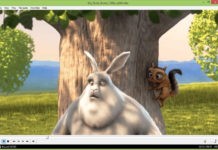Windows 1.0
Almost 30 years ago, the world was introduced to the first Microsoft Windows OS. Designed for the ‘serious PC user’, it transformed computing from typing MS-DOS commands (remember the black screen and commands beginning with “C:” and containing numerous backslashes?) to clicking through different programs in the form of ‘windows’. Drop-down menus, scroll bars, icons, and dialog boxes make the computer accessible and easy to navigate.
Windows 95
The first Windows OS to allow access to the internet with Internet Explorer, this OS also offered radical new features: the start menu, task bar, and minimise, maximise and close buttons. To run Windows 95, you needed a PC with a 386DX or higher processor and at least 4 MB of RAM. It sold 7 million copies, breaking records at the time.
Windows 98
Released on the 25th of June, 1998, this Windows OS was the first to be specifically targeted at consumers. It became more and more common for homes to own a PC, something previously reserved for the wealthy or those who worked with computers. Internet Cafes started to become popular places for people to meet and play games or surf the net together. This OS also supported DVDs and USBs.
Windows ME
An even more specialised OS for the home user, this operating system revolutionised music, video and gaming experiences. It introduced Windows Movie Maker (remember that?) that allowed you to edit your own videos and make movies and picture slideshows. Digital media became easy to find, organise, edit and save.
Windows 2000
With the new millennium came new enhancements to the Windows OS. No longer would Microsoft operating systems use codes based on the original: its code was built from scratch. This OS supported portable computing and offered significant improvements to almost every aspect of Windows, especially internet browsing.
Windows XP
Visually appealing, its aesthetics weren’t the only thing that Microsoft improved upon. This OS was easier to use and had more features than any of its predecessors. It reigned supreme for many years, with plenty more software being developed for this OS.
Windows Vista
Improved security and new design made this an attractive upgrade. Laptop sales increased immensely with the OS and people felt more secure surfing the net and downloading and installing new software.
Windows 7
The fastest selling operating system in history with seven copies being sold every second by the fall of 2010, Windows 7 outdid all its predecessors. Easy to use, visually stunning, secure and fast, this left most other operating systems outmatched and trailing behind. Most computers now have this operating system in place, and with good reason.
Windows 8
We’ve yet to see the success of this new operating system, but it’s safe to assume it will build on everything that’s already successful with the Windows OS. Its chic design and good compatibility with tablets and touch screen PCs and laptops makes it desirable if not necessary.
It will take some time, however, to evaluate its success. With technology evolving so quickly, it can be hard and expensive to stay at the forefront and evaluate different products. So if you don’t have the money to buy or upgrade your computer, finance or rent a computer from a good dealer. This way you’ll experience the latest Windows OS with minimal cost and decide if it’s really worth the upgrade.
Linda Campbell is a freelance writer and PC owner whose first operating system was Windows 98. She uses computer finance to buy the latest computers and laptops when in need of an upgrade.








